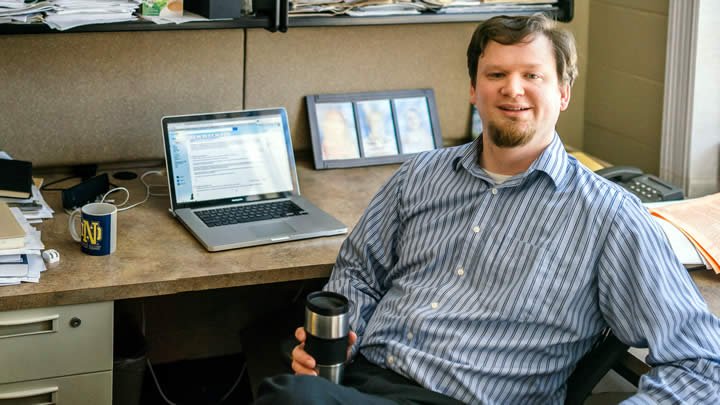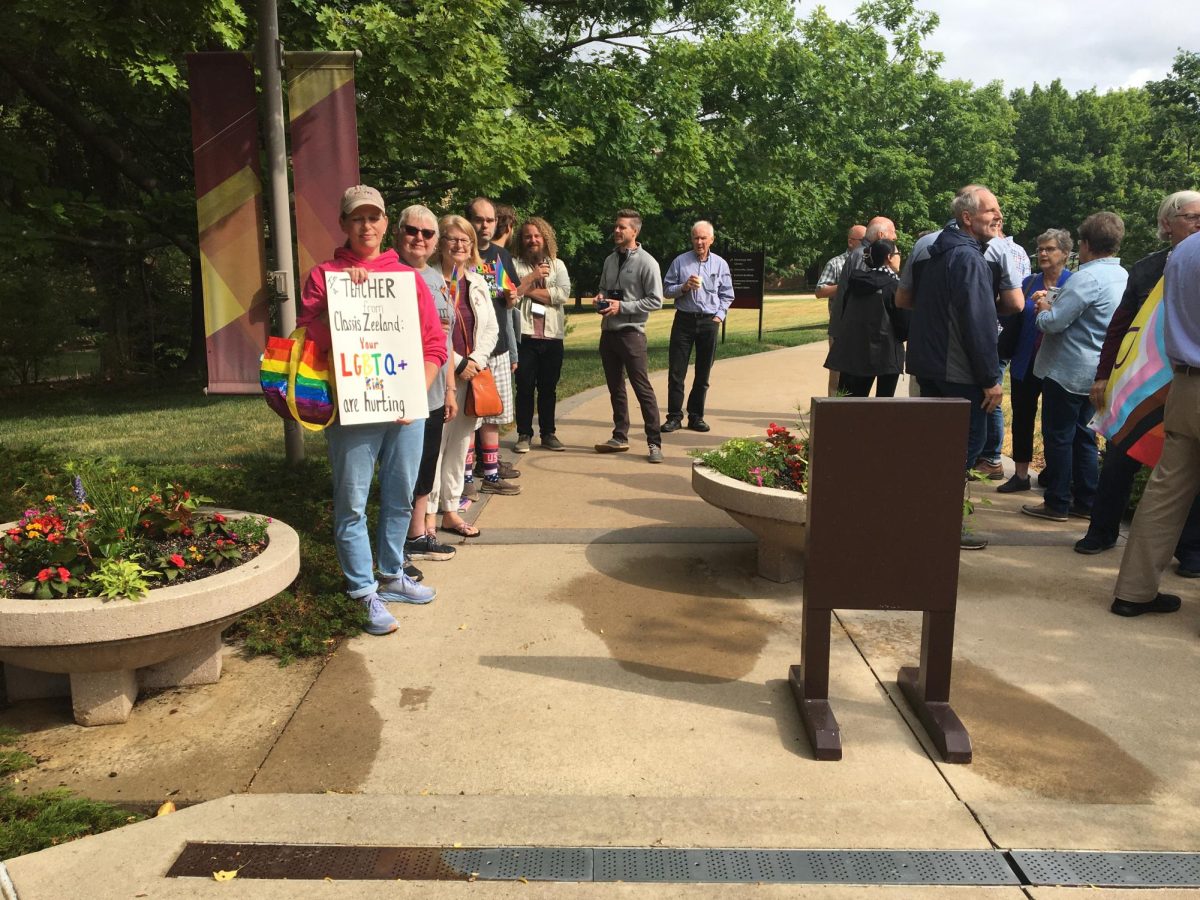In a month-long program at Oxford University this summer, 25 faculty members from the Council for Christian Colleges and Universities will meet to “bridge the two cultures of science and the humanities.”
The program features guest lectures, mentor sessions with fellow scholars, and visits to relevant UK cultural sites like Charles Darwin’s residence at Cambridge.
The official website for the “Bridging the Two Cultures” program states that it “will focus on the need for participants to develop the interdisciplinary skills and understanding central to the field of science and religion.”
Jonathan Hill, a sociology professor at Calvin, is one of the scholars selected to attend the program. Hill is interested in studying the divide between science and religion advocates and “why people hold so strongly to one view or another.”
The spectrum of beliefs about science and religion, Hill explained, features vocal minorities at both ends. While the majority of people either don’t care as much or are unsure about their beliefs, groups at either end are extremely passionate because “they view a lot at stake.”
“There’s a strong sort of fundamentalism on each side … [and] I respect those strong feelings,” said Hill. Rather than trying to “solve theological puzzles,” Hill looks at the ideological divide itself. His work is not about finding “what’s true,” but “what people believe.”
Hill explained that, compared with its peer nations, the United States has a very high rate of anti-evolutionist beliefs. Although this is often considered an effect of poor science education, Hill argues that it has more to do with Americans’ social and historical context.
“People can learn all about the mechanisms of evolution and can describe it very well and can still not believe it at all,” Hill said. “[People] tend to think it’s some sort of rational decision people make.”
Hill says that most people’s beliefs about topics like science and religion are not formed entirely rationally.
“That’s not how we come to our beliefs and our knowledge about the world,” he said.
According to Hill, members of the general public tend to underestimate the influence that social and environmental factors have on their beliefs, especially in a controversial area like the intersection of science and religion.
In a nation-wide survey he conducted about beliefs about human origins, Hill discovered that someone with anti-evolutionist views was significantly more likely to change his or her opinion if one of his or her closest friends held an opposing view.
Hill said that sustaining both extreme anti-science and anti-religion views “requires a group of like-minded believers who reinforce your position and make it seem like the natural, the only, the common-sense view of the world.”
This “plausibility structure” allows groups at both ends of the issue to stand firm in their beliefs.
Having previously been awarded a grant from the BioLogos Foundation, Hill has already published articles about his findings in scholarly journals and been featured in media outlets like NPR and slate.com.
Hill hopes to write a book about his work after gathering further survey results and learning from historians and other fellow scholars while at Oxford this summer.
Hill emphasized the value of understanding people and their beliefs when it comes to such a difficult issue:
“There’s the notion that there’s sort of a culture war about this, and people spend a lot of time demonizing others as opposed to trying to understand others.”
Although Hill admits that social science alone can’t “get people to live in harmony,” he is hoping to promote this understanding through his work.







